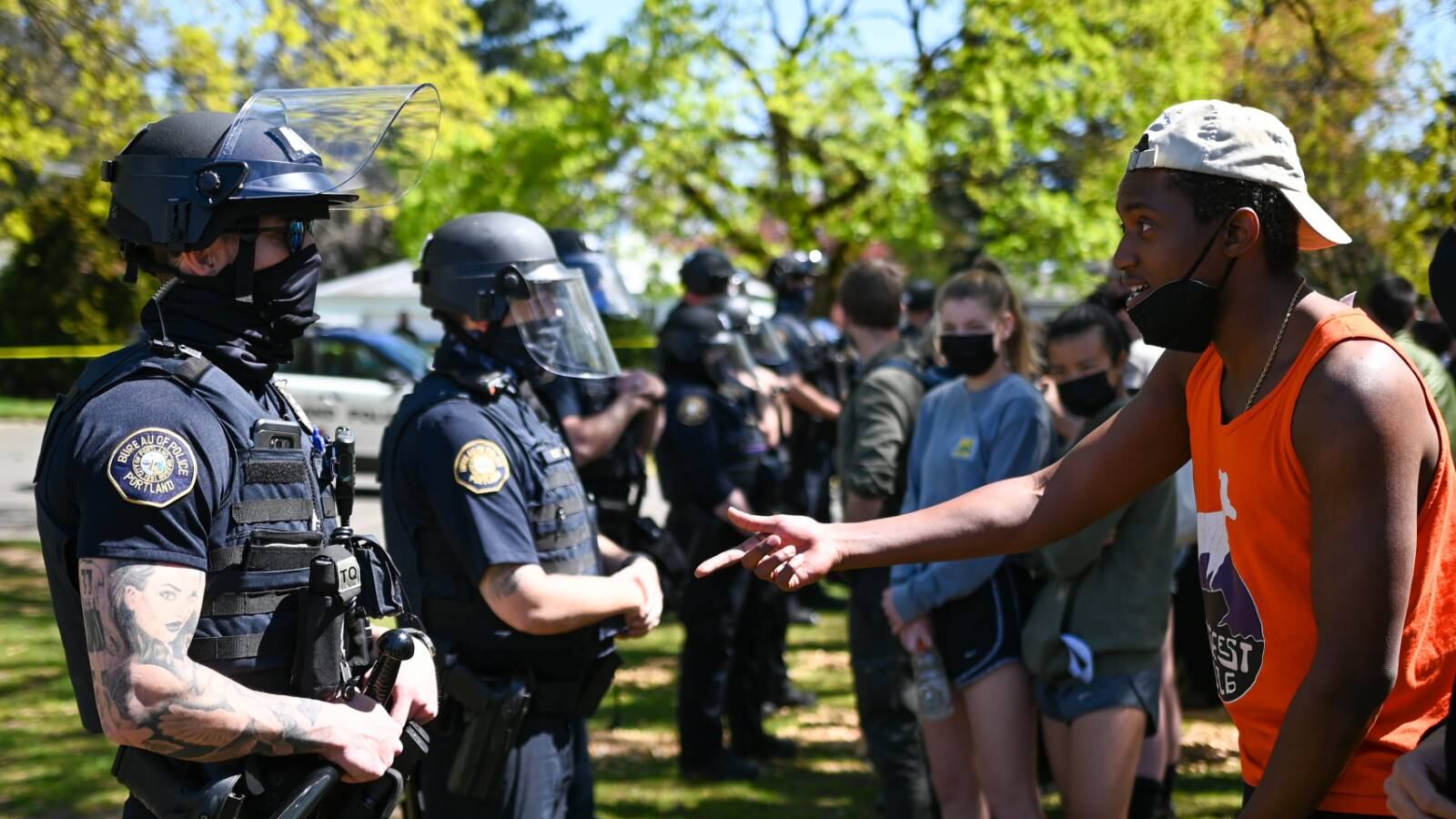A ballot initiative launched by the Portland Police Association that seeks to increase the city’s police ranks is now being challenged by the ACLU of Oregon.
The American Civil Liberties Union challenge, filed in Multnomah County Circuit Court on March 5, makes the argument that the initiative seeks to make changes that are administrative in nature, not legislative. Interestingly, the ACLU does not focus on the PPA’s main aim with the initiative, which is to increase the number of sworn police officers in Portland. Instead, the ACLU focuses on a part of the initiative that seeks to “create and maintain 24-hour drug/alcohol detoxification drop-off and treatment centers” and “increase and maintain street response services, including social workers working with police and fire personnel to reduce violence and connect people with services.“
A ballot initiative cannot contain more than one subject, the ACLU argues in its legal filing, and is therefore violates an Oregon law.
“Public health institutions and police workforce numbers are separate subjects, and determining the number of staff to hire for City services is an administrative, not legislative matter,” the filing, filed by the ACLU on behalf of Joy Alise Davis, executive director of Imagine Black, reads. The filing add that the initiative “impermissibly seeks to engage voters on non-legislative matters on multiple subjects within a single City initiative.”
The PPA, the union representing city of Portland police officers, filed two ballot initiatives with the city last month aimed for the November ballot: the initiative now being challenged by the ACLU, and a second that seeks to fundamentally change both the authority and purpose of a soon-to-be-set-up police oversight board that Portlanders approved with a 2020 ballot measure amid the racial reckoning following the murder of George Floyd.
While the ACLU’s court challenge is based on a procedural issue, the subtext of the filing is clear: The ACLU for years has fought against the expansion of the Portland Police Bureau and has long opposed the overpolicing of communities of color. The ACLU in its filing also argues that tying the two issues together—behavioral health problems and policing—is a dangerous precedent to make policy decisions by.
“While good intention may drive a desire to promote police involvement in public health issues as a matter of policy, separate consideration of these two subjects at the ballot box ensures the public maintains a freedom of choice in determining how each system should operate,” the ACLU argues. “Failing to apply the single subject rule here presents Portland voters with an artificially constrained choice on matters of both administrative and legislative: vote for increased police hiring and building and running new detoxification and treatment centers and increase social worker staffing and implement tax spending changes, or get none of those things. This is not a fair choice.”
A twin challenge to the PPA’s initiative, filed by the ACLU on behalf of its director of community engagement, Jackie Yerby, challenges the ballot initiative title itself.
In that filing, the ACLU argues that the ballot title conflates two city services that are distinct: policing and the city’s mental health street response program, the latter of which is embodied by the popular Portland Street Response program. That program is a non-police response to people suffering from mental health issues on the streets, first launched in 2018. However, the program is now under threat as City Commissioner Rene Gonzalez has warned he may cut $3 million from its annual operating budget.
“The hope was that this reimagined response [Portland Street Response] would disrupt the history of Portland Police violence against people experiencing mental health crises and ensure that appropriate professionals were dispatched to people needing healthcare not handcuffs,” the ACLU wrote in its filing. “Portland Street Response and the Portland Police are thus fundamentally and quite intentionally distinct public services provided by the City of Portland through separate programs with separate staff, goals, budgets, and procedures.”
As WW reported last year, Portland ranks 48th in police per capita among the country’s 50 largest cities.
Aaron Schmautz, president of the PPA, said the ACLU’s challenge is an example of “ideological opposition from those who don’t trust democracy.”
“Portlanders are begging for a public safety system that is accountable, responsive, and functional. We believe we want the same things the people do, and that these measures will move us forward together,” Schmautz said. “We believe that adding more police officers, strengthening integration with social service providers and adding detox centers is exactly what it will take to improve public safety in Portland. These measures protect individual rights AND public safety.”

